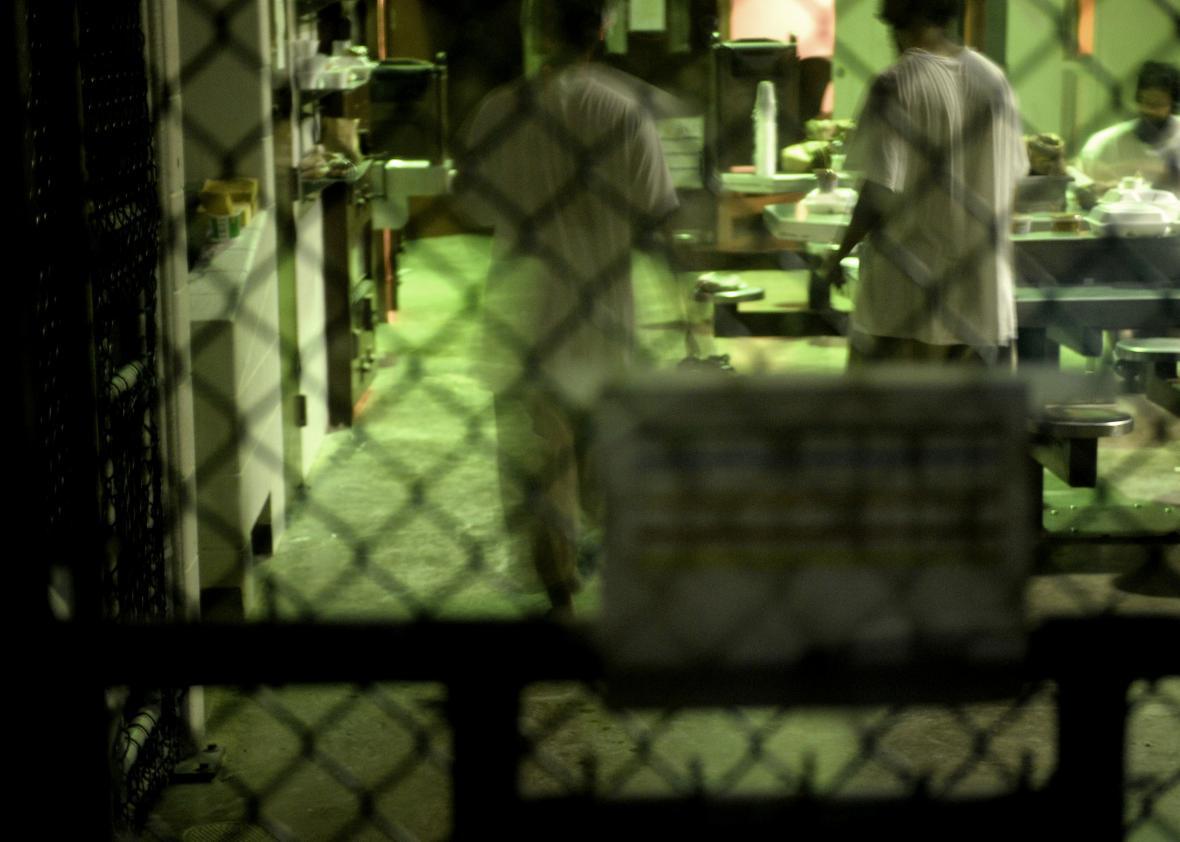Commanders at the U.S. Navy base in Guantanamo Bay, Cuba, have shut down the 100-cell Camp 5 portion of the notorious detention center and are converting it into a medical facility. This means that the number of troops and civilian personnel manning the facility will shrink from 1,950 to 400, reports the Miami Herald. And after the transfer of 15 detainees to the United Arab Emirates in August, the largest single transfer of the Obama administration, there are just 61 detainees left in a facility that has housed 779 since it was established in 2002. Twenty more have been recommended for transfer and are likely to be shipped out in the coming months.
Still, Gitmo will almost certainly still be open when Barack Obama leaves office, leaving unfinished one of the signature pledges of his 2008 campaign as well as an executive order he signed on his first day in office. The last-ditch plan for closing Guantánamo that Obama announced in February requires Congress to approve the transfer of the last detainees—including the 31 being held indefinitely and not recommended for transfer to other countries—to supermax prisons or military facilities in the United States, something Congress has consistently blocked.
The lion’s share of the blame for Gitmo still being open undoubtedly lies on an uncooperative Congress, though advocates for closing the facility have been frustrated that the administration didn’t make it more of a priority early on, choosing to focus its political capital on domestic issues instead. According to an anonymous White House official quoted by the New Yorker, former chief of staff Rahm Emanuel once advised the president, “Why are we going to waste our political capital on detainees? No one is going to give you any credit for closing Guantánamo—and you’re willing to risk being the only Democratic president to solve the health-care problem?”
At this point, the best Obama can hope for is to reduce the population as much as possible before he leaves office. What happens after that depends on the next president. If Donald Trump is elected, he has pledged to keep the facility open and “load it up with bad dudes.” He also wants to put U.S. citizens accused of terrorism on trial in military tribunals held there.
Hillary Clinton has been a longtime advocate of closing Guantanamo. In 2007, she co-sponsored a bill authored by Dianne Feinstein that would have shut down the facility and moved its detainees either to other countries or facilities in the United States. As secretary of state, she appointed a special envoy to negotiate the release of detainees and reportedly personally intervened to resolve the cases of several of them, including Canadian child soldier Omar Khadr. Just before stepping down, she wrote a memo to Obama, urging him to continue efforts to close Guantánamo.
Still, given the fact that Obama was unable to get this done, despite very publicly and clearly tying himself to the issue, it’s unclear how committed Clinton will be in fighting this fight. Gitmo now seems more likely to end through sheer inertia, when the population gets so small that even its most intractable backers start to see it as a legal and economic absurdity—or, perhaps, when the last detainee finally dies.
